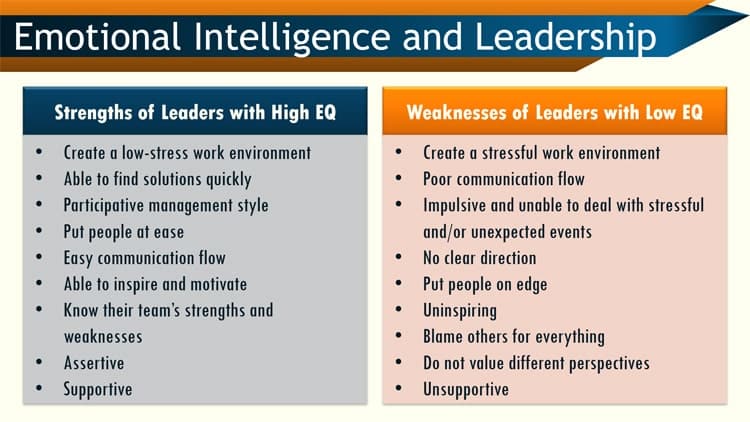Let’s talk about self-awareness – the cornerstone of emotional intelligence. It’s the ability to recognize and understand your own emotions, thoughts, and values, and how they impact your behavior and interactions with others. When you develop self-awareness, you gain clarity about your strengths and weaknesses, which empowers you to make conscious choices that align with your values. By cultivating this key skill, you can enhance your relationships, improve decision-making, and ultimately lead a more fulfilling life. So, how can you develop self-awareness? Let’s dive into the practical steps you can take to become more self-aware and unlock your full potential.
Understanding Self-Awareness
Self-awareness is a crucial component of emotional intelligence and is vital for personal growth and development. It is the ability to understand and recognize your own emotions, thoughts, and behaviors, as well as having insight into how others perceive you. By cultivating self-awareness, you gain a deeper understanding of yourself, which enables you to make more informed decisions, improve your relationships, and effectively manage your emotions.
Definition of Self-Awareness
Self-awareness can be defined as the conscious knowledge and understanding of one’s own character, emotions, and motives. It involves having clarity about your strengths, weaknesses, values, and beliefs. It is about being in tune with your emotions and understanding how they impact your actions and interactions with others. Self-awareness allows you to take a step back and observe yourself without judgment, enabling you to identify areas for growth and change.
Components of Self-Awareness
Self-awareness has several components that contribute to a deeper understanding of oneself. The first component is emotional self-awareness, which involves recognizing and understanding your own emotions. It means being able to identify and label different emotions accurately. The second component is self-perception, which involves having insight into your own strengths, weaknesses, values, and beliefs. Self-perception is about understanding who you are as an individual. The third component is self-confidence, which is believing in your own abilities and having a positive self-image. It is about trusting yourself and your judgment.
Importance of Self-Awareness
Self-awareness is essential for personal growth and development. When you are self-aware, you have a better understanding of your emotions, reactions, and behaviors. This understanding allows you to manage your emotions effectively, leading to improved decision-making and problem-solving. Self-awareness also plays a significant role in building and maintaining healthy relationships. By being aware of how your actions and words impact others, you can adjust your behavior accordingly and foster stronger connections. Additionally, self-awareness helps you align your actions with your values, enabling you to live a more authentic and fulfilling life.
Recognizing Emotions
Recognizing and understanding emotions is a fundamental aspect of self-awareness. Being able to identify and label your emotions accurately is the first step in managing them effectively.
Identifying and Labeling Emotions
To identify and label your emotions, it is important to tune in to your body sensations and thoughts. Pay attention to how your body feels when you experience different emotions. Does your heart race when you feel anxious? Does your stomach tighten when you feel angry? Once you are aware of these physical sensations, you can identify the corresponding emotions. Use a vocabulary of emotions to accurately label what you are feeling. Instead of simply saying you feel “bad,” try to identify if you are feeling sad, frustrated, or disappointed.
Understanding Emotional Triggers
Emotional triggers are events or situations that elicit specific emotional responses within us. By understanding our emotional triggers, we can gain insight into why we react in certain ways. Pay attention to the patterns and recurring themes in your emotional reactions. Are there specific situations that consistently evoke a strong emotional response? Understanding your emotional triggers allows you to respond more consciously and effectively, rather than reacting impulsively.
Noticing Subtle Emotional Reactions
In addition to recognizing intense emotions, it is important to pay attention to subtle emotional reactions. Sometimes, emotions may manifest in subtle ways, such as a slight tightening of the jaw or a change in body posture. By tuning in to these subtle cues, you can gain a more comprehensive understanding of your emotional landscape. Noticing these subtle emotional reactions can help you identify underlying emotions and address them before they escalate.
Understanding Personal Values, Beliefs, and Attitudes
Understanding your personal values, beliefs, and attitudes is an integral part of self-awareness. These aspects shape your thoughts, actions, and decision-making processes.
Exploring Core Values
Core values are deeply held beliefs that guide your behavior and decision-making. They are what you consider to be most important in life. Take the time to explore and identify your core values. Reflect on what truly matters to you and what principles you want to live by. Consider values such as honesty, compassion, integrity, and growth. By aligning your actions with your core values, you can live a more authentic and purposeful life.
Examining Belief Systems
Belief systems are the set of thoughts and ideas that shape your perception of the world. They influence how you interpret events and interact with others. Take a closer look at your belief systems and question their validity. Are there any limiting beliefs that hold you back? Are there any biases or prejudices that may cloud your judgment? By examining and challenging your belief systems, you can expand your perspective and open yourself up to new possibilities.
Identifying Attitudes and Assumptions
Attitudes and assumptions are the lens through which you view the world. They can significantly impact your relationships and interactions with others. Take a moment to reflect on your attitudes and assumptions. Are there any negative or limiting attitudes that you hold? Are there any assumptions you make about others that may be inaccurate? By becoming aware of your attitudes and assumptions, you can challenge them and develop a more open-minded and accepting mindset.
Learning from Past Experiences
Reflecting on past experiences is a valuable tool for self-awareness and personal growth. By examining your past behaviors, patterns, and reactions, you can extract lessons and opportunities for growth.
Reflecting on Past Behaviors
Take the time to reflect on your past behaviors and actions. Consider situations where you may have acted in a way that was not aligned with your values or goals. Reflect on the impact those behaviors had on yourself and others. By examining your past behaviors, you can gain insight into any recurring patterns or tendencies that may need to be addressed.
Analyzing Patterns and Reactions
Look for patterns and trends in your emotions, thoughts, and behaviors. Are there certain situations that consistently elicit a particular response from you? Are there triggers that lead to unhelpful or unhealthy reactions? By analyzing these patterns, you can better understand the underlying causes and make conscious choices to break free from negative cycles.
Extracting Lessons and Growth Opportunities
Every experience, whether positive or negative, provides an opportunity for learning and growth. Take the time to reflect on past experiences and extract the lessons they offer. What did you learn about yourself? How have those experiences shaped you? By extracting the lessons and growth opportunities, you can integrate them into your present and future actions, enabling personal development and progress.
Cultivating Mindfulness
Mindfulness is a powerful practice that enhances self-awareness by bringing attention to the present moment without judgment.
Practicing Present Moment Awareness
Bring your focus to the present moment by paying attention to your thoughts, emotions, and bodily sensations. Practice observing your experiences without judgment or attachment. Be fully present in the tasks you are engaged in, whether it is eating, walking, or having a conversation. By practicing present moment awareness, you can cultivate a deeper understanding of yourself and the world around you.
Engaging in Meditation or Breathwork
Meditation and breathwork are effective techniques for cultivating mindfulness. Take a few minutes each day to sit quietly and focus on your breath. Notice the sensation of your breath moving in and out of your body. When your mind wanders, gently bring your focus back to your breath. Over time, meditation and breathwork can help calm your mind, improve focus, and increase self-awareness.
Developing Non-judgmental Observation
Incorporate non-judgmental observation into your daily life. Instead of labeling experiences as good or bad, try to observe them without attaching any judgments. Practice accepting things as they are without the need to change or control them. By developing non-judgmental observation, you can cultivate a sense of curiosity and openness, allowing for a deeper understanding of yourself and others.
Seeking and Accepting Feedback
Seeking and accepting feedback from others is a valuable tool for self-awareness and personal growth. By actively seeking feedback, receiving constructive criticism, and processing it effectively, you can gain valuable insights into how your behaviors and actions impact others.
Actively Seeking Feedback
Actively seek feedback from trusted individuals in your life, such as friends, family, colleagues, or mentors. Ask for their honest observations and suggestions for improvement. Be open to receiving both positive and constructive feedback without becoming defensive. Actively seeking feedback shows your commitment to personal growth and demonstrates a willingness to learn from others.
Receiving Constructive Criticism
When receiving constructive criticism, it is important to approach it with an open mind and a willingness to learn. Take the time to understand the feedback and consider how it aligns with your own self-perception. Instead of becoming defensive, ask clarifying questions and seek to understand the other person’s perspective. View constructive criticism as an opportunity for growth and improvement.
Processing and Implementing Feedback
Once you have received feedback, take the time to process it and reflect on how it aligns with your own observations. Identify any patterns or recurring themes in the feedback and consider how you can implement changes in your behaviors or actions. Choose specific areas for improvement and develop an action plan to work towards positive changes. Regularly review your progress to ensure you are making meaningful strides based on the feedback received.
Developing Empathy
Empathy is the ability to understand and share the feelings of others. Developing empathy enhances self-awareness by allowing you to see different perspectives and connect on a deeper level with others.
Understanding Others’ Perspectives
Take the time to consider and understand the perspectives of others. Put yourself in their shoes and imagine how they may be feeling or thinking in a given situation. Seek to understand their experiences, motivations, and challenges. By understanding others’ perspectives, you can develop a broader and more compassionate view of the world.
Showing Compassion and Understanding
Empathy involves showing compassion and understanding towards others. Practice acts of kindness and compassion in your daily life. Be patient and understanding when others make mistakes or face challenges. Demonstrate empathy by listening actively, offering support, and validating others’ emotions. Showing compassion and understanding not only benefits others but also promotes self-awareness and enhances your relationships.
Practicing Active Listening Skills
Active listening is a crucial aspect of empathy and self-awareness. Practice being fully present and engaged when someone is speaking to you. Give them your full attention, maintain eye contact, and refrain from interrupting. Demonstrate that you are listening by nodding or affirming statements. By practicing active listening skills, you can deepen your understanding of others and foster more meaningful connections.
Enhancing Emotional Intelligence Skills
Emotional intelligence is the ability to recognize, understand, manage, and use emotions effectively. Enhancing your emotional intelligence skills is essential for self-awareness and personal growth.
Managing and Regulating Emotions
Managing and regulating emotions is a core component of emotional intelligence. Take the time to identify and understand your emotions. Practice techniques such as deep breathing, journaling, or engaging in physical activity to help regulate your emotions. By effectively managing and regulating your emotions, you can make more rational decisions and respond to situations in a balanced and constructive manner.
Improving Emotional Resilience
Emotional resilience is the ability to bounce back from setbacks, adversity, and challenges. It involves developing a mindset that embraces growth and learning from difficult experiences. Cultivate emotional resilience by reframing setbacks as opportunities for growth, practicing self-care, and seeking support from others. By improving your emotional resilience, you can navigate life’s challenges with greater ease and maintain a strong sense of self-awareness.
Developing Interpersonal Skills
Interpersonal skills are the ability to communicate, collaborate, and build relationships effectively. Developing strong interpersonal skills enhances self-awareness by improving your ability to understand and connect with others on a deeper level. Practice active listening, assertive communication, and empathy in your interactions. Develop a genuine interest in others and seek to understand their perspectives. By honing your interpersonal skills, you can cultivate stronger and more meaningful relationships.
Setting Personal Development Goals
Setting personal development goals is a proactive way to enhance self-awareness and continue on the path of personal growth and improvement.
Identifying Areas for Improvement
Take a moment to reflect on areas of your life that you would like to improve. It could be related to your relationships, career, personal well-being, or any other aspect that is important to you. Identify specific behaviors, habits, or mindset shifts that would contribute to your growth in those areas. By identifying areas for improvement, you can focus your efforts and create a roadmap for personal development.
Setting Realistic and Specific Goals
When setting personal development goals, it is important to make them realistic and specific. Break down your broader goals into smaller, actionable steps. Be specific about what you want to achieve and set measurable criteria to track your progress. Setting realistic and specific goals allows you to stay motivated and monitor your growth effectively.
Creating an Action Plan
Once you have identified your areas for improvement and set goals, create an action plan. Outline the steps you need to take to achieve your goals and set deadlines for each step. Consider any resources, support, or tools that may be helpful along the way. Regularly review your action plan, track your progress, and make adjustments as necessary. By creating an action plan, you can stay organized and committed to your personal development journey.
Engaging in Continuous Self-Reflection
Engaging in continuous self-reflection is a powerful practice for self-awareness and personal growth. By journaling or writing, seeking clarity in your thoughts and feelings, and reviewing your progress, you can deepen your understanding of yourself and continue to evolve.
Engaging in Journaling or Writing
Journaling or writing is a valuable tool for self-reflection and self-awareness. Set aside dedicated time each day or week to write down your thoughts, emotions, and experiences. Use writing prompts or free writing to explore deeper aspects of yourself. Reflect on your goals, progress, and challenges. By engaging in journaling or writing, you can gain clarity and develop a deeper sense of self-awareness.
Seeking Clarity in Thoughts and Feelings
Take moments throughout the day to pause and reflect on your thoughts and feelings. Cultivate a sense of curiosity and inquire into the underlying causes or motivations behind them. Ask yourself why you think or feel a particular way. By seeking clarity in your thoughts and feelings, you can gain a deeper understanding of yourself and your experiences.
Reviewing Progress and Growth
Regularly review your progress and growth. Take the time to celebrate your achievements and acknowledge your efforts. Reflect on the positive changes you have implemented and the lessons you have learned. Consider any areas where you may still need to put in more effort or make adjustments. By reviewing your progress and growth, you can stay motivated and continue to evolve on your personal development journey.
In conclusion, self-awareness is a foundational element of emotional intelligence and personal growth. By understanding your emotions, recognizing your values, beliefs, and attitudes, learning from past experiences, cultivating mindfulness, seeking feedback, developing empathy, enhancing emotional intelligence skills, setting personal development goals, and engaging in continuous self-reflection, you can deepen your self-awareness and unleash your potential for personal and interpersonal success. Embrace the journey of self-discovery and be open to the transformative power of self-awareness.


